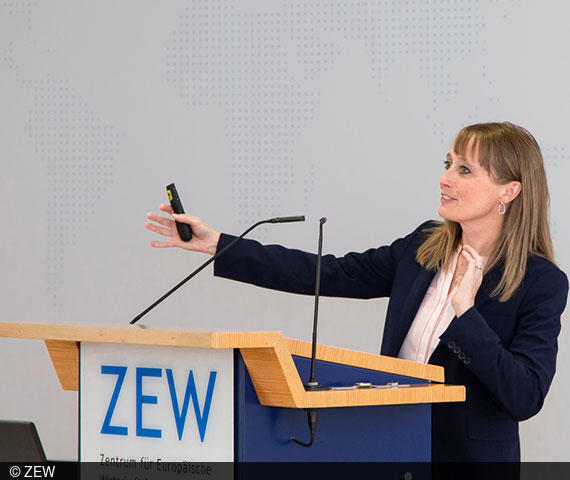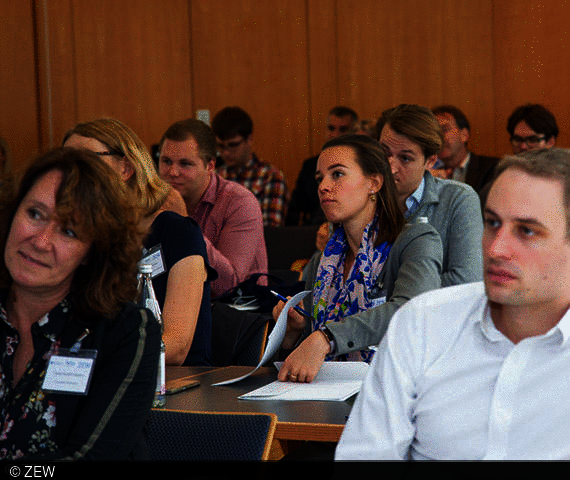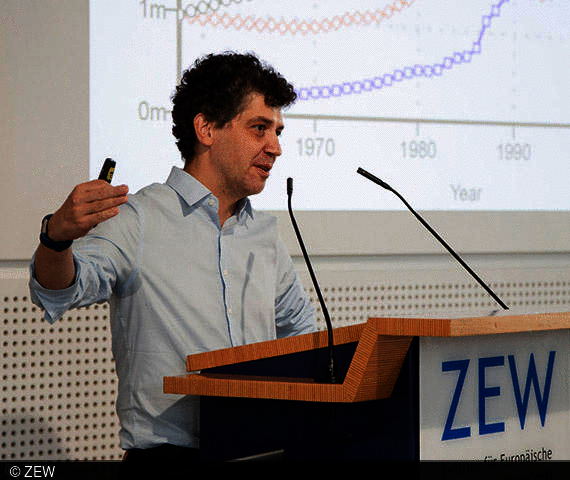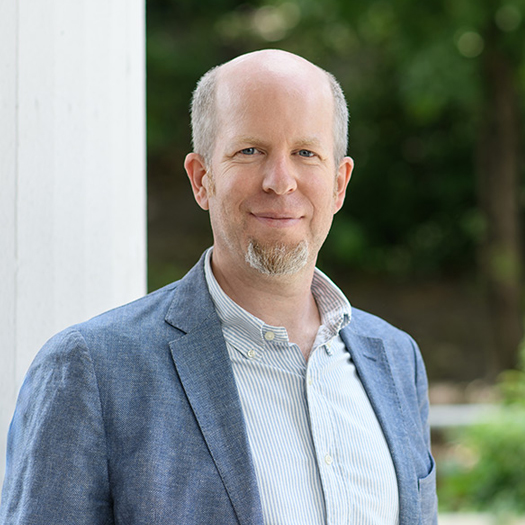Leading Economists Discuss Tax Avoidance, Inequality and Other Issues at the Annual MaTax Conference
EventsHow can we design a sustainable tax system that can meet future economic and societal challenges on the national, European and global level? This is one of the questions addressed at the fifth international annual MaTax conference in Mannheim in the beginning of October 2018. The conference was organised by ZEW and the University of Mannheim within the framework of the Leibniz ScienceCampus “Mannheim Taxation” (MaTax).
Around 80 participants from all over the world attended the conference, which featured a total of 36 presentations and twelve sessions on current taxation issues. This year, the conference included keynote speeches by Professor Michelle Hanlon of the Massachusetts Institute of Technology (MIT) and Professor Wojciech Kopczuk from Columbia University.
What facilitates tax avoidance and what prevents it?
During the conference, Michelle Hanlon, a professor in the field of accounting at the MIT Sloan School of Management, gave an overview of scientific research on tax avoidance, highlighting the political significance of this matter. In her research, Professor Hanlon focuses, amongst other things, on measuring the level of tax avoidance. To this end, she developed an indicator which showed a clear increase in the past 25 years. At the same time, she also found systematic differences between sectors as well as correlations with certain company characteristics. In another study, she showed that the attitude of individual managers also has an influence on the tax avoidance strategy pursued within firms. Another major issue in her presentation was the influence of reputation effects and public pressure on tax evasion. If aggressive tax practices become public, this has a negative effect on stock prices. This effect is particularly pronounced among firms that are in direct contact with end consumers and for whom the loss of reputation entails more serious consequences. By investigating the activities of a British non-governmental organisation, she also found that tax evasion decreases when tax practices are brought into the public eye.
Corporate profits and measuring inequality
In his speech, Wojciech Kopczuk, a professor in the field of economics and international and public affairs at Columbia University, explained how the measurement of corporate profits influences different indicators of income inequality. From a fiscal perspective, not only dividends but also retained profits should be factored in shareholders’ income. So far, these two components have either not or only to an insufficient extent been included in data sets. In a study in collaboration with further authors, which investigated administrative tax data for Norway and the US, Professor Kopczuk found, however, that dividends and retained earnings are quantitatively significant. This holds particularly for top earners. For the richest 0.1 per cent of the population in Norway, the retained profits of unlisted companies play a particularly important role. Kopczuk also shed light on approaches adopted in the US, which aimed to extend the measurement of income distribution by the mentioned components. While this increases the share of income allocated to the richest one per cent of households, it also reduces increases in income inequality in the long term.
Fostering scientific exchange through MaTax
As in previous years, the fifth annual MaTax conference provided an opportunity for top-level scientific exchanges. As Professor Christoph Spengel, ZEW Research Associate and MaTax director, emphasised in his opening speech, the continuing success of the conference reflects the excellent reputation that MaTax and the tax research in Mannheim enjoy. There are already numerous events planned for the coming year. In addition to the events held in Mannheim, future MaTax events will include, for instance, a round table discussion on tax policy in the digital era in Berlin. MaTax is funded jointly by ZEW, the University of Mannheim, the State of Baden-Württemberg and the Leibniz Association, of which ZEW is a member. The ScienceCampus further collaborates with the Institute for Financial and Tax Law of Heidelberg University.



